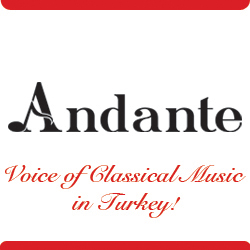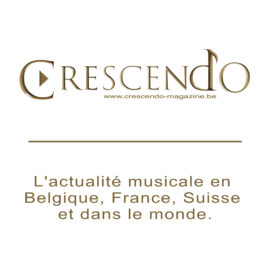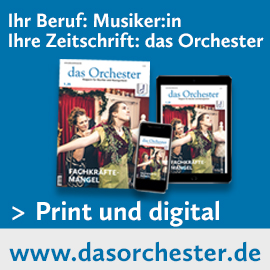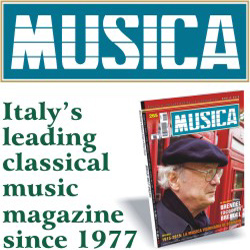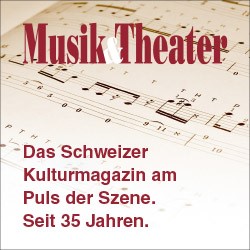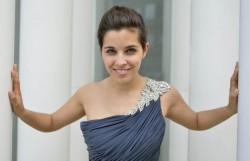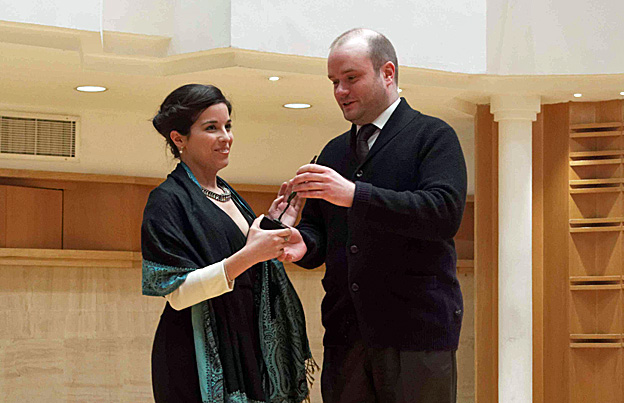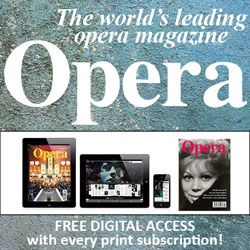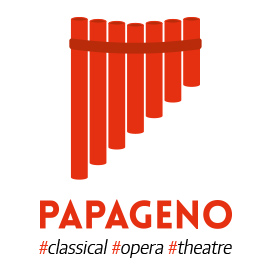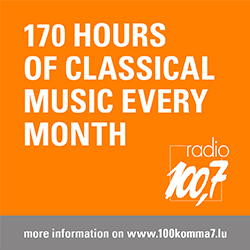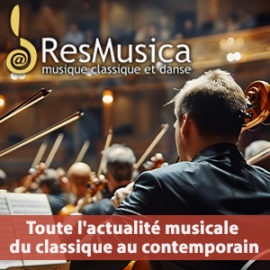Jodie Devos, Young Artist of the Year (Vocal) of ICMA’s winner list 2015, in an interview made by Bernadette Beyne (Crescendo), Isabel Roth (MDR Figaro) & Pierre-Jean Tribot (ResMusica), edited and translated by Remy Franck (Pizzicato)
When did you decide to become a singer?
Early, when I was ten! In the beginning I wanted to sing pop music. But when I decided to be a singer, I wanted to sing in a proper way. I thus decided to take lessons and came in touch with opera. I completely fell in love with it. Neither opera nor classical music were part of my childhood. The classical music arrived later, when I was about 16 years old. Before long I decided to be singer of classical music.
So, this is uncharacteristic: you discovered opera at the age of eleven, and a few years later you were awarded the Second Prize at the Queen Elisabeth Competition, without having distinguished yourself in the usual academic way. You got your Master’s degree at the IMEP in Namur and then made more studies in London. Which other important steps have you taken?
I lived in Neufchâteau, in the Belgian region Ardennes. My piano teacher sent to me to Ciney because she knew a singing teacher who, she thought, could give me a lot: Françoise Viatour. It was her who made me discover opera. Then I arrived at the IMEP, where I studied with Benoît Giaux and Laure Delcampe. I spent there five very, very beautiful years. Benoît Giaux sent to me in Denmark to attend a master class with Noëlle Barker. I also met Audrey Hyland who is a vocal coach at the Royal Academy of Music in London. She suggested that I apply for an audition and I did it successfully. So, every meeting really prepared the following step. I definitely needed to quit Belgium and to study elsewhere. It helped me to mature. And the Queen Elisabeth Competition just had the perfect timing: I had finished my studies in London and I had six months to prepare the competition.
What does characterize the so renowned London education?
The vision. We had one a half hour of vocal technique per week, with different coaches, but we worked a lot on repertoire, and they made us curious to discover a heap of things. That was so important for me. There were not only some pieces to be learnt over the year but we really got into the repertoire.
You thus joined a fine institution but in a way you remained free …
No institution holds the truth. Not even an institution like the Royal Academy of Music … You have to take whatever is important for you and build yourself.
Still it is necessary to be capable of doing so. This is part of the talent.
Luck alone wouldn’t work. You need talent, you must work and take some risks. Staying at home doesn’t bring a lot. So, one day, I said to my parents: I leave for a boarding school in Ciney, because I want to take singing lessons. I left all my friends only to take singing lessons. I had a goal and I made every possible effort to reach it. I left for London without a penny and, as others, I managed to live there for two years, creating my own opportunities. My strength is maybe that I am a natural go-getter.
You speak about meetings, about opportunities … You took part in the ICMA Award Ceremony and Gala Concert in Ankara and you were invited to sing at the concert. For three days, you met the members of the jury, other artists, managers, label representatives. Which impressions did you get?
Very positive ones! We know little about the environment of musical criticism and I was happy to get a closer look at it. For me it was a good occasion to make enriching encounters. From the beginning I knew that had to sing, but I did not expect meeting people with whom I could be able to create new projects. So, the event was not only about collecting my trophy and thanking the jury, but it allowed to meet people like the Young Artist of the Year Instrumental, Yury Revich, and many others, and all this will allow me to continue building my career. This was, at the end, a real surprise to me. We do not always measure the influence which every person can have on the creation of projects … It’s a big alchemy …
How do you choose your roles? Is it about opportunities, as for your engagement with the Opéra Comique in Paris, or do you already work on roles which you will absolutely have to sing?
For a coloratura, certain roles are indispensable: Olympia and the Queen of the Night have to be part of my luggage. But for the moment, opportunities are even more important. I also would like to sing Lucia di Lammermoor! Her somehow schizophrenic, very complex character is appealing to me. Lucia was one of the first operas I heard and one of my first loves. But there are other roles which I would like to sing, operas from Mozart and Donizetti, Pamina maybe, in some years. Obviously there are also roles which, technically, I will never be able to sing.
Nathalie Dessay always dreamed to sing Lulu while it was almost impossible. Is there any role you are dreaming of, knowing that technically you can’t do it?
Yes, Madama Butterfly! The character touches me a lot but, unfortunately, I am not a Butterfly. However, Natalie Dessay believed she could never sing Traviata and nevertheless, one day, she was ready to sing the role. Certain dreams can come true. At least I know that I shall never be able to sing Wagner, but his music is terrific!
How do you work on a new role? With a teacher? Do you study other performances, do you look into the work’s history?
I really try to totally understand the piece. Often I will need a translation in order to know exactly what I am going to sing. I obviously will also have a close look at the context of the work’s genesis and, yes, at performances of past times. Then, I try to appropriate the character. In London I learnt various manners to define a character and to keep my own personality in this character, so to avoid appropriating the character of somebody else. I really try to get into the piece and to find out what, personally, I could bring to the role. At the moment, I still meet coaches. I need this look from outside on what I am going to do in order to be prepared in the best possible way.
You have such a sense for drama on stage! How important is this in what you are doing?
It is as important as the voice. If I can touch the audience with characters like Cunégonde or Lakmé, then I have well done my work.
Where does you naturalness on stage come from?
I don’t know. I had in London a very great teacher, John Ramster, who taught me to look for the roots of a role. I learnt a lot during my years in Belgium and then in London. But maybe that it is something that I already had in me before …
Certain actors, in particular in the movies, are totally merged with their roles, in all the aspects of their life, at least as long as the shooting lasts. Do you feel anything similar?
I have still not enough experience, I did not sing enough complete roles. But I would not be surprised that I could feel in a similar way. In an interpretation one certainly uses the input from own experiences, and when it comes to strong characters, one has to go all-in. We can find ourselves in very different states of mind, yet it is also necessary to stay true to yourself …
Anything to say about your inspiration?
I was very inspired by the great French coloratura Natalie Dessay. Her theatrical talent is fantastic. I looked a lot into what she has done. But my mother always said that I always was a comedienne, and I can actually feel that it is a part of me. I had to learn singing, the vocal part of the work, but when I am on stage, I really feel at home.
And what about the Lied repertoire?
I like it very much. I sing many French melodies because it is my mother tongue and this allows me to play with the words. I would be happy, obviously, to be an opera singer, but in any case I would want to reserve a part of my career for the recital. I would really love doing so. The audience is very different, the relation between the spectators and the singer is very different. I would like to cultivate both repertoires.
Do you listen to a lot of recordings of operas and classical music?
I work a lot on operas and, when I have some free time, I like listening to something else, jazz, pop music … Classical music is not my only musical universe.
If you were a bird?
A tit. Some people would rather say a nightingale but for me, it is a tit.


